Transitioning to Sustainable Events
Background
The urge and necessity to stand out and be noticed in today’s world make events of all kinds very popular with almost all businesses. Events are one of the most effective and time efficient way of sharing thoughts, identifying solutions for a problem and reaching agreement.
All such events require resources like money, people, materials, transportation, operation, hospitality, etc. at different scale. The quantities required of each of these resources depend on factors that include the size and location of the event venue, available resources, and reputation of the organizer.
As such, in the use of these resources, events can have a significant impact on the environment. While most of the guidelines given in this document are applicable for various kind of events, the main focus is on business related meeting and workshops.

Concept of Sustainability in Relation to Events
Sustainability should be taken not only as a requirement but also as a responsibility when planning and executing events. Considering “sustainability” while planning an event is the need of the hour. A sustainable event is designed, organized and implemented to minimize negative environmental, social, and economic impacts thus minimizing the burden on environment. When planning an event, it is necessary to evaluate the impacts on environment both during and after the event.
The degree to which sustainability is implemented is up to the event planner and may be affected by costs, convenience and availability of products and services. Sustainable events rely on incorporating socially justifiable principles into all levels of the event’s organization and implementation, which also creates a more positive effect on the participants and for the host or brand.
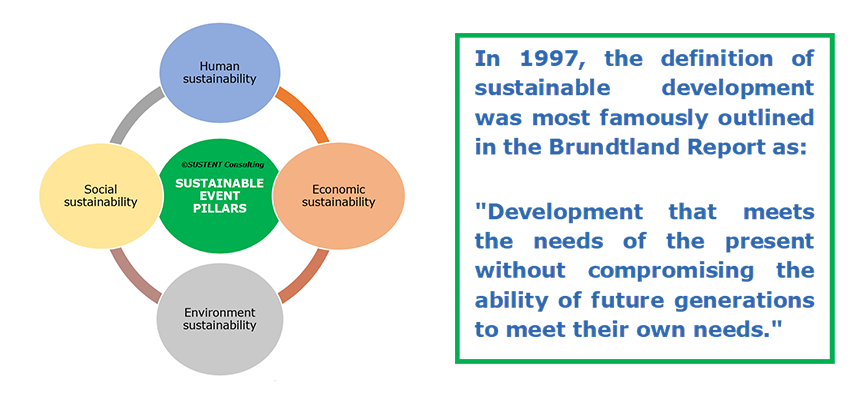
How To Make an Event Sustainable?
Planning an event well in advance is the most crucial part of organizing a successful sustainable event. Effective planning and preparation for the event will have dual advantage – control costs for the organizer and taking off the extra burden on environment. For example:
- The organizer may not have the ability to make structural altercations to existing event building, therefore, planning the event well in advance and choosing the existing green building or certified sustainable venue considering all aspects and impacts often makes the event cost- efficient. Such venues have effective resource efficiency and waste management guidelines in place, thus reducing the load on environment.
- Also, advance booking rates for venue or flights are typically lower. So, in this case too, the advance planning will help the organizers control cost of the event. For this, it is important to have a planning procedure – before, during and after event.

The boxes below showcase a concise list of suggested actions against each element that will help organizers to plan an event, and also serve as a guide along the way.
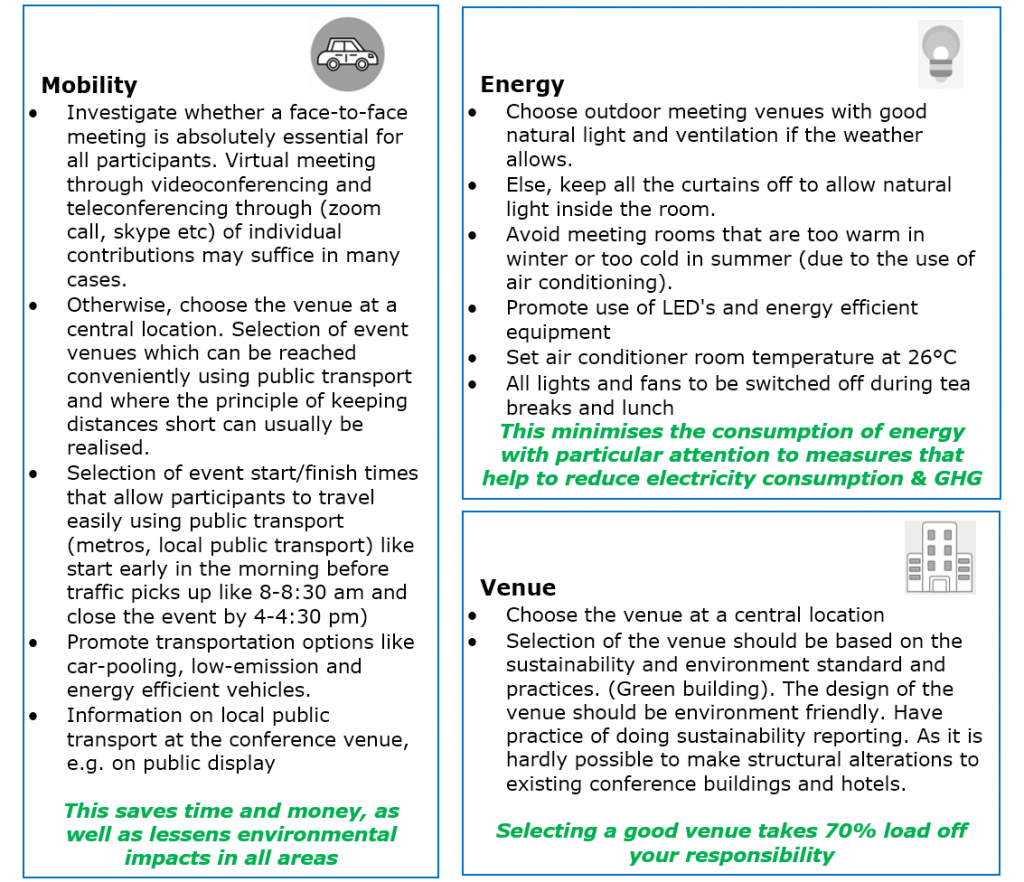
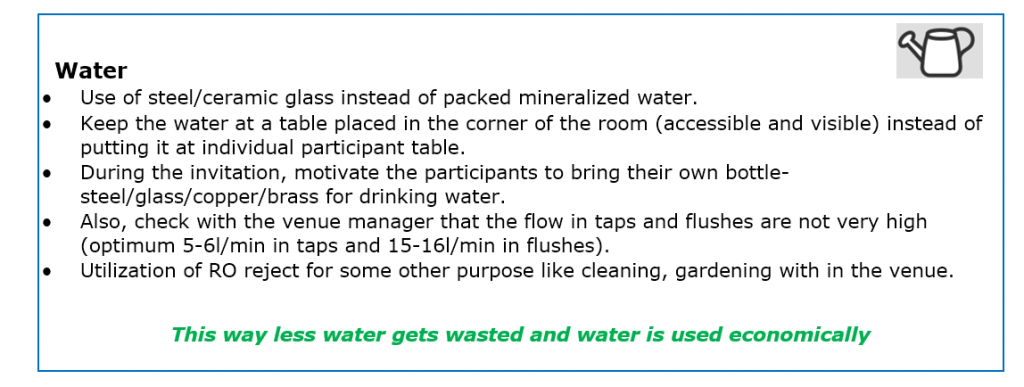
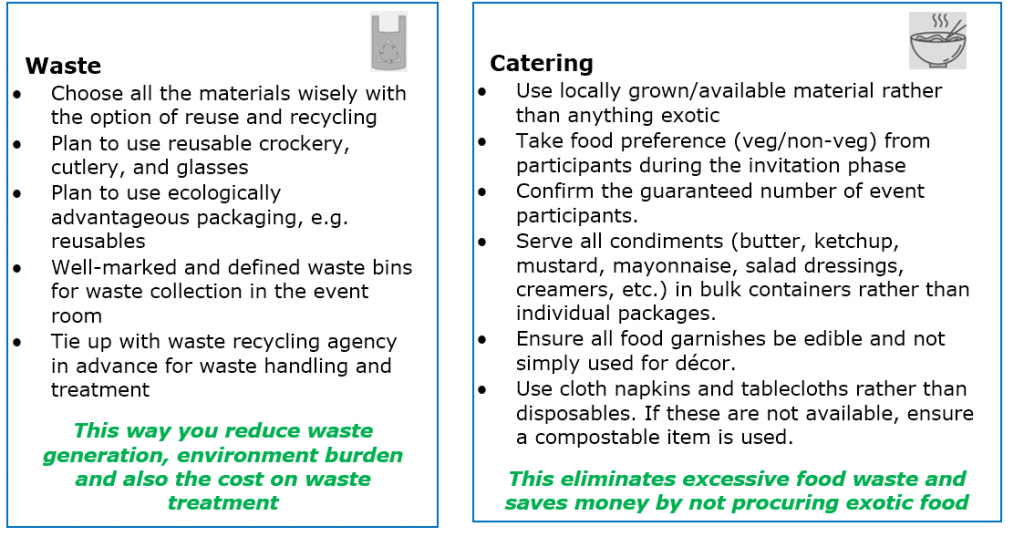

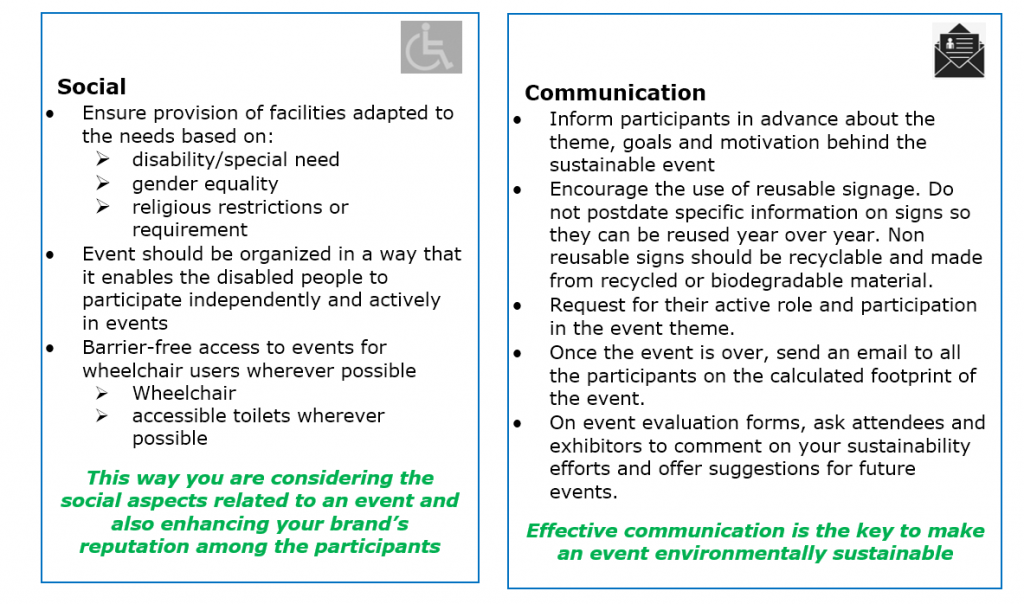

Conclusion
It is hardly possible to organize a totally sustainable event with carbon neutrality. There will always be some unavoidable carbon emissions produced by the event. However, the tips given in the previous section are easy to put into practice and certainly do their bit in the fight for climate change.
You may reach out to SUSTENT Consulting in case you need additional guidance and support in organizing an event with low carbon footprint. The SUSTENT team has been organizing project events sustainably for several projects in India and other South-east Asian countries since last 5 years. You may visit METABUILD project website (https://metabuild-southasia.org/) where the SUSTENT team was responsible for conducting many events sustainably.
References
- Ecowise, “green event ideas”, November 2007
- Federal Ministry for the Environment, Nature Conservation, Building and Nuclear Safety (BMUB), “ Guidelines for sustainable organization of events”, February 2015.
- Experience grand rapids convention and visitors bureau, “ Planning and conducting sustainable meetings and events”, 2008.
- UNEP, “Sustainable Events Guide”, 2012.
Ranu has worked in India, Bangladesh, Nepal, Sri Lanka and Myanmar on a wide range of projects delivering resource efficiency solutions to clients across many different industries. She is a certified ISO 14001 Lead auditor.
